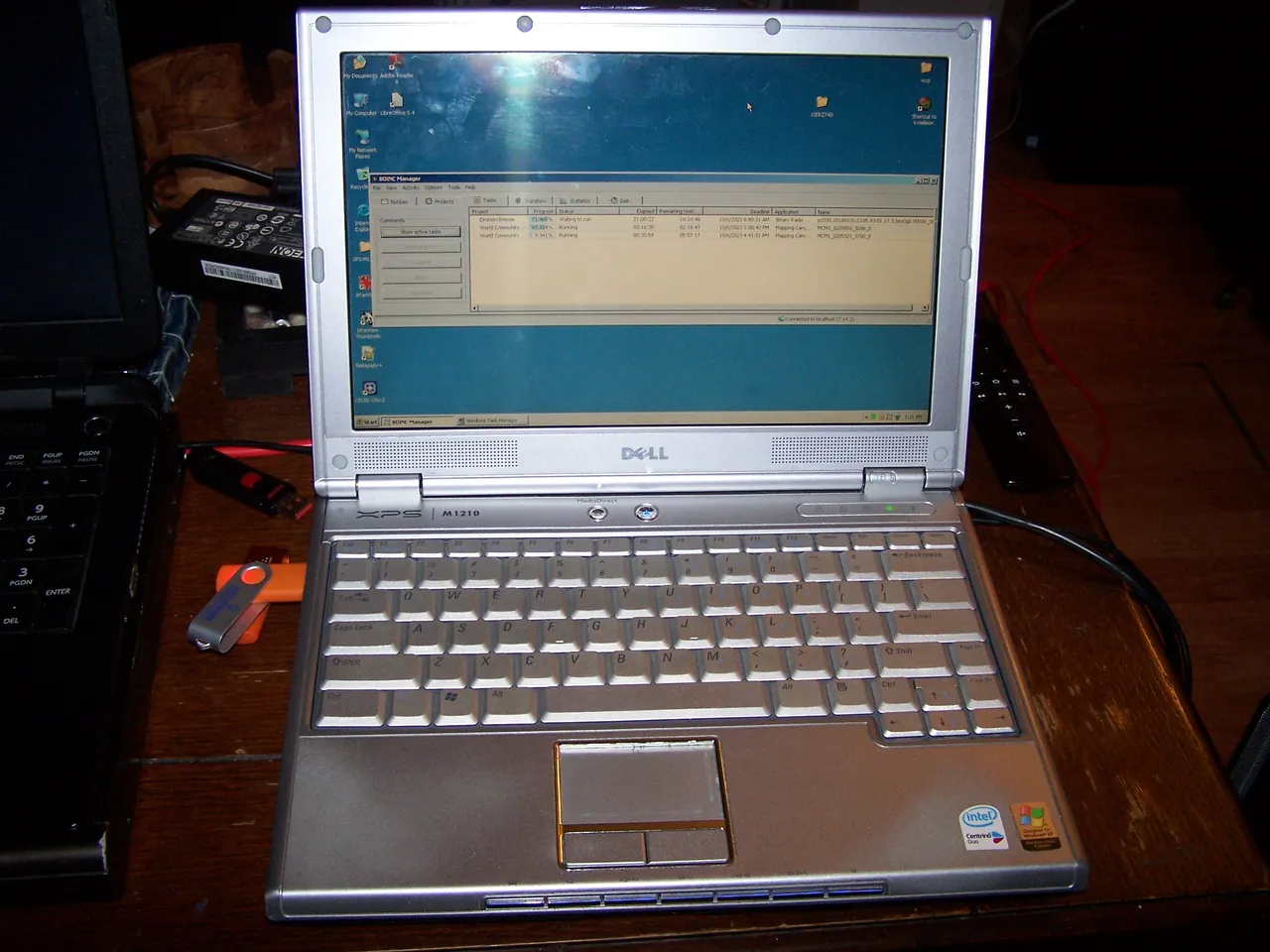
The Dell XPS M1210 is an ultraportable laptop that was released in 2006. It used the i945GM chipset and supported a wide range of CPUs including Pentium M, Core Duo and Core 2 Duo models. There were also at least two motherboard variants, one supporting just the built-in Intel graphics of the i945GM chipset and the other supporting a GeForce Go 7600.
This particular model has a Core Duo CPU and the Intel graphics. Some highlights include:
- CPU: Core Duo T2400 @ 1.86 GHz
- Graphics: Intel i945GM
- RAM: 3 GB DDR2
For more complete specs, check out the reports generated by HWiNFO and CPU-Z.

Having the lower-end Intel graphics may sound like a disadvantage but the fact of the matter is that if it had the GeForce graphics option it probably wouldn't be working now. This laptop was made in that era when solder was transitioning away from lead and apparently they hadn't quite got it right yet. The GeForce chip ran hot and the expanding and contracting due to the heating and cooling of the chip would inevitably crack the solder joints leading to a non-functional system.
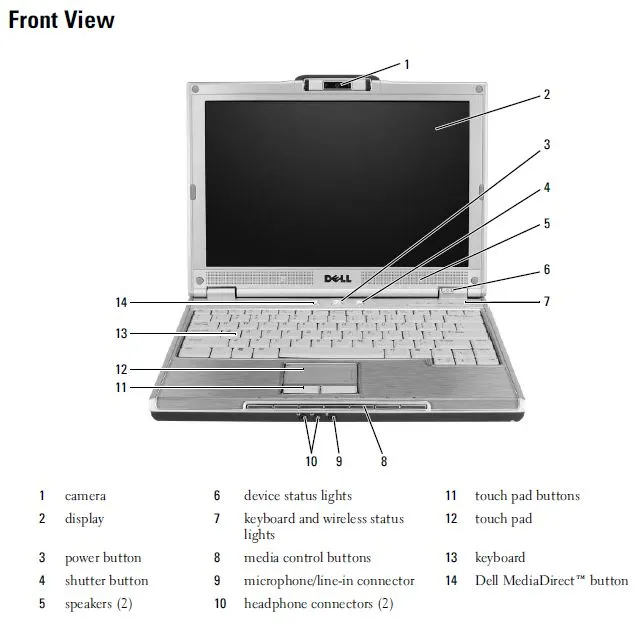
This is definitely small laptop so if you are looking for something ultra portable and easy to carry around then this would have been a pretty good choice. For its time, the XPS M1210 didn't really skimp on much other than size. In terms of size, it reminds be a bit of the ~12-inch Power PC based PowerBooks that were around a few years before this laptop would have been though this one is probably a bit thicker.
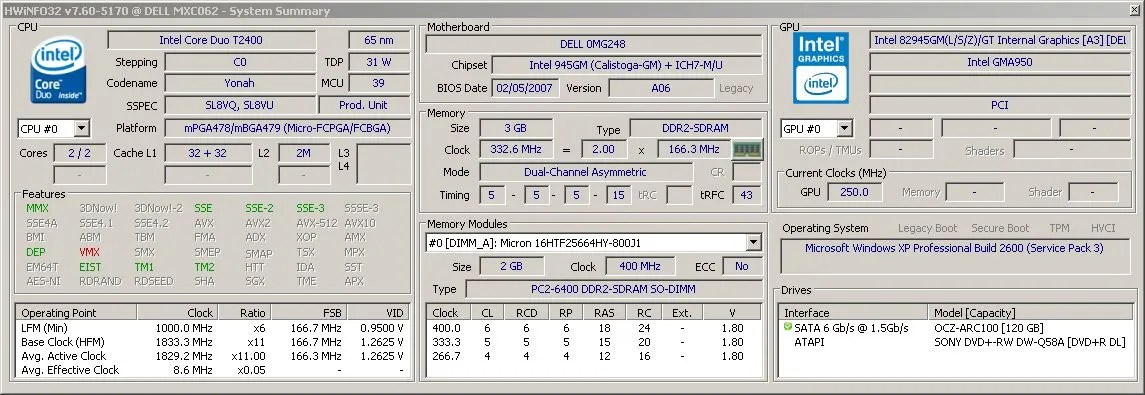
The Core Duo T2400 is kind of limiting in that it is a 32-bit CPU. I'm currently running Windows XP which is what it would have shipped with though the sticker says "Vista Capable". It should also run a 32-bit version of Linux reasonably well too. If you really wanted to, you can upgrade the CPU pretty significantly, all the way up to a Core 2 Duo T7600.

When I think of the XPS line I usually think of reasonably capable gaming systems. This laptop is definitely not one of those. The lack of a dedicated GPU make it pretty useless for popular games of the time. You could of course play older games.
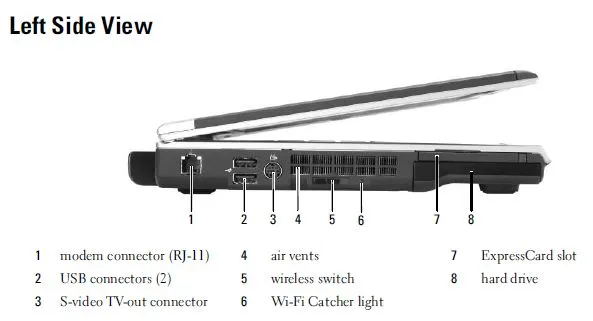
32-bit systems have lost most software support. There is no longer a 32-bit version of Windows that is still maintained. There are still 32-bit Linux distributions but only a couple. This is a relatively high-end 32-bit system so it is probably an ideal candidate for Linux.
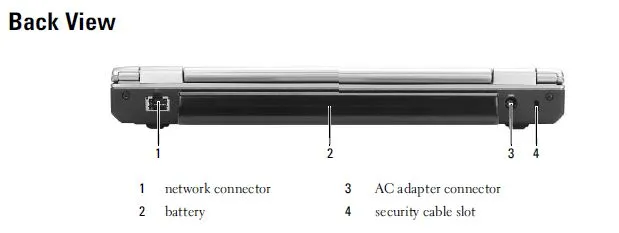
My favorite app to run on any hardware is BOINC and at least for now, Windows XP can still run a usable version of BOINC and participate in a few projects. So far, this laptop has processed work for Einstein@home, Asteroids@home, and World Community Grid. You can see how it is doing overall at FreeDC.
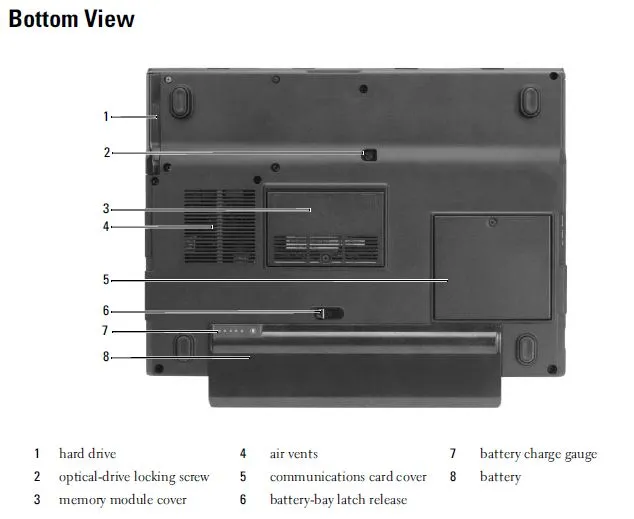
Read more: https://www.megalextoria.com/wordpress/index.php/2024/08/06/digital-archaeology-dell-xps-m1210/
Check out my other Social Media haunts (though most content is links to stuff I posted on Hive or reposts of stuff originally posted on Hive):
Wordpress: https://www.megalextoria.com/wordpress
Tumblr: https://www.tumblr.com/blog/darth-azrael
Twitter: https://twitter.com/Darth_Azrael
Blogger: https://megalextoria.blogspot.com/
Odyssee: https://odysee.com/@Megalextoria:b
Rumble: https://rumble.com/c/c-2385054
Daily Motion: https://www.dailymotion.com/Megalextoria
Books I am reading or have recently read:
Fallen Founder: The Life of Aaron Burr by Nancy Isenberg
Tom Clancy's Op-Center: God of War by Jeff Rovin
Red Sails Under Red Skies by Scott Lynch
Republic of Thieves by Scott Lynch

